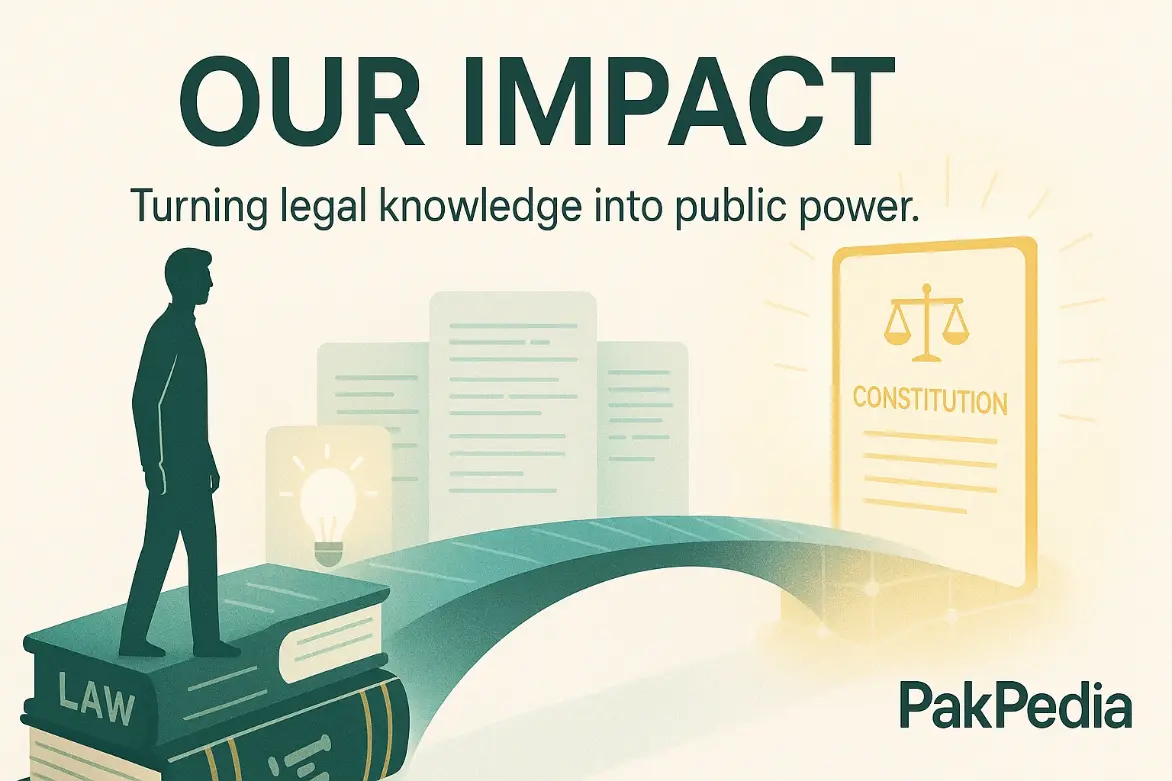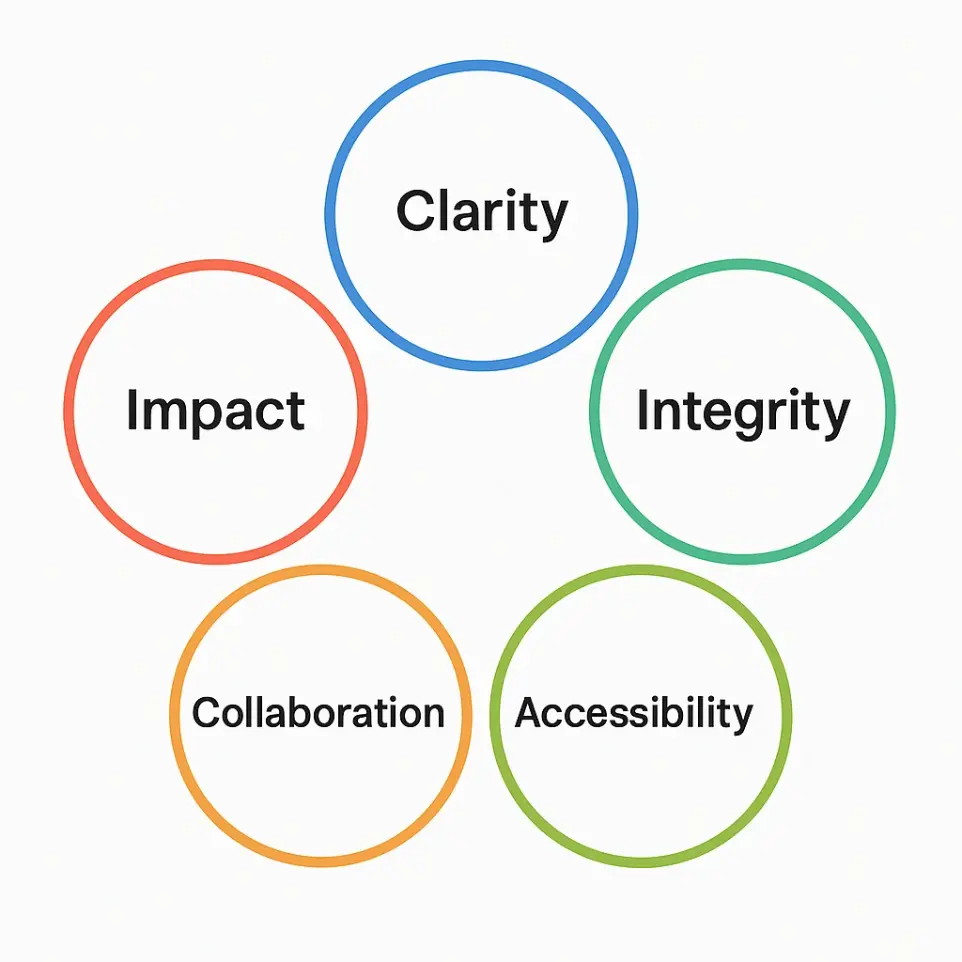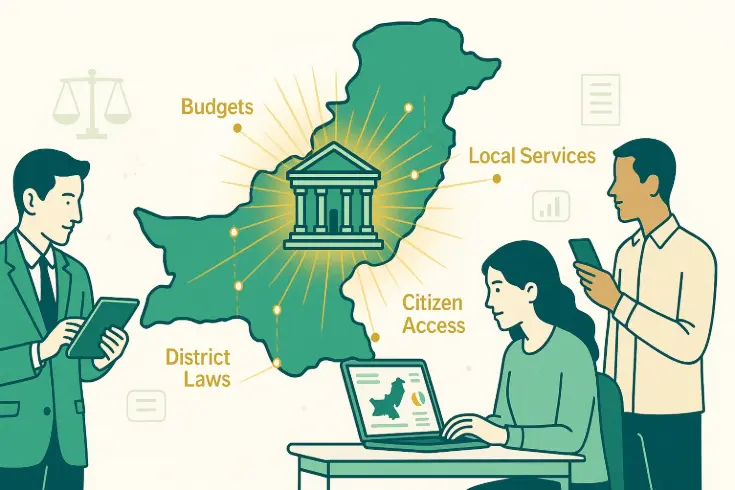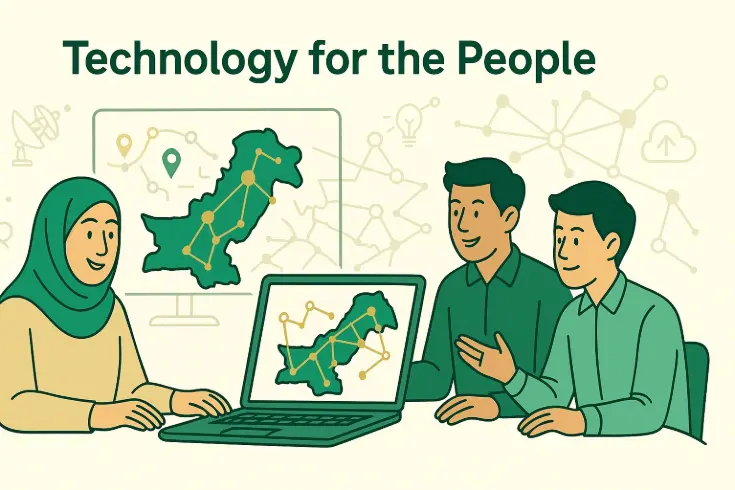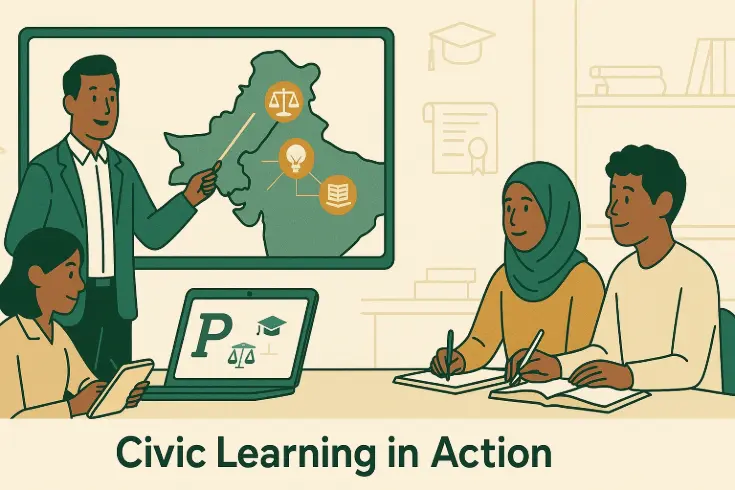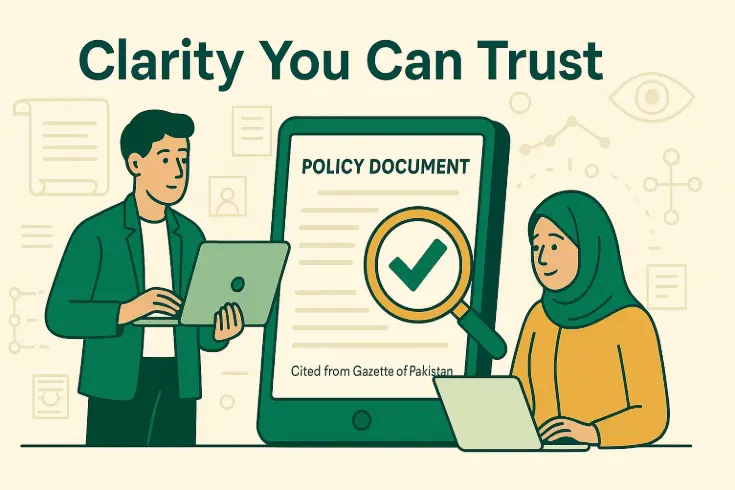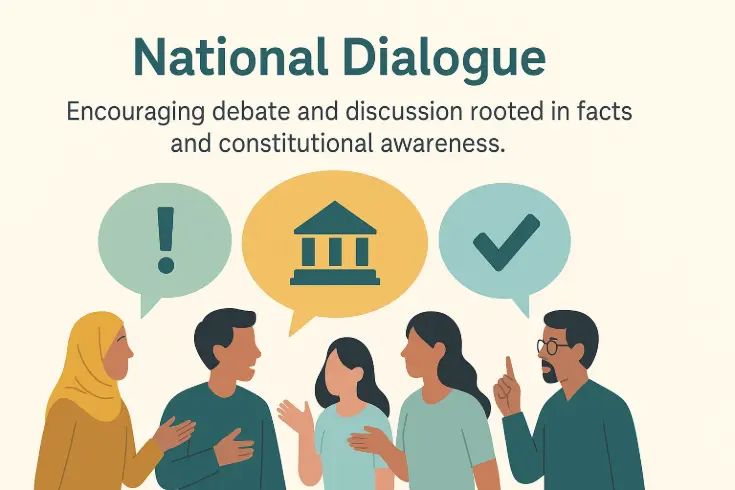Legal Literacy
Understanding your rights shouldn’t require a law degree.
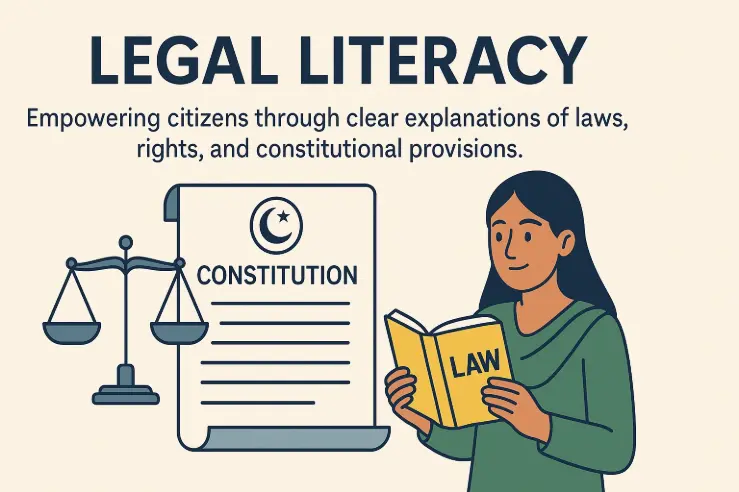
What This Means?
Legal literacy means more than reading a law — it means understanding how that law protects, limits, and empowers you in daily life. When citizens know their rights and obligations, they can question unfair treatment, recognize when due process applies, and seek justice confidently. PakPedia turns abstract legislation into accessible knowledge, enabling individuals — from students to small business owners — to interpret legal principles without needing a lawyer. This understanding builds trust in institutions, reduces misinformation, and helps ordinary Pakistanis navigate the legal system with confidence and dignity.
Many Pakistanis encounter legal systems only in moments of conflict or confusion. Legal language, inaccessible formats, and misinformation leave most citizens unaware of their basic protections. PakPedia bridges this gap through clear, translated, and verified explanations of the Constitution and laws that shape daily life.
Key Points:
Current Issues:
- Most citizens cannot interpret legal terms found in acts or court decisions.
- Legal aid is expensive, and misinformation spreads easily on social media.
How PakPedia Solves It:
- Explains every constitutional article in plain Urdu and English.
- Publishes contextual summaries with cross-linked references to official gazettes.
Example & Impact:
- Example:
A shop owner in Faisalabad used PakPedia’s “Consumer Protection Act Explained” article to understand his rights after a billing dispute. - Impact:
Citizens gain confidence to challenge unfair practices without needing intermediaries.
- Example:
